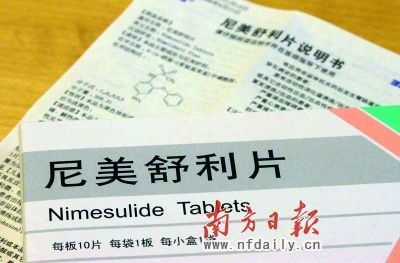China bans controversial drug for kids below 12
The State Food and Drug Administration (SFDA) issued a circular on Friday banning the use of Nimesulide, an anti-inflammatory drug, for children under the age of 12, considering potential side-effects such as liver and kidney damage.
|
The State Food and Drug Administration issued a circular on May 20, 2011 banning the use of Nimesulide, an anti-inflammatory drug, for children under the age of 12, considering potential side-effects such as liver and kidney damage. |
Nimesulide is a non-steroidal anti-inflammatory drug that first became available in Italy in 1985. It is now used in more than 50 countries and regions.
The drug entered Chinese markets in 1997.
|
Don't miss: |
Previously, the SFDA only prevented the use of the drug among children one year old or younger.
Also on Friday, the SFDA ordered the suspension of the production, sales and use of Duxil (almitrine and raubasine compound) due to its "unobvious" efficacy.
According to the SFDA, clinical research found "little" evidence proving the drug effectively improves the cognitive ability for patients suffering vascular cognitive impairment.
The drug was supposed to treat symptoms related to cognition and sensory nerve damage.
The moves came after a two-month nationwide campaign was launched earlier this month to probe the quality of essential drugs and ensure drug safety.
Official figures show that China's National Center for Adverse Drug Reaction Monitoring received 692,904 reports of adverse reactions in 2010, up 8.4 percent compared with those in 2009.
Among the total, 109,991 cases involved new or severe adverse reactions, a year-on-year increase of 16.2 percent.
Go to Forum >>0 Comments
No comments.
 0
0 







